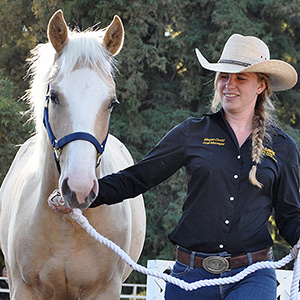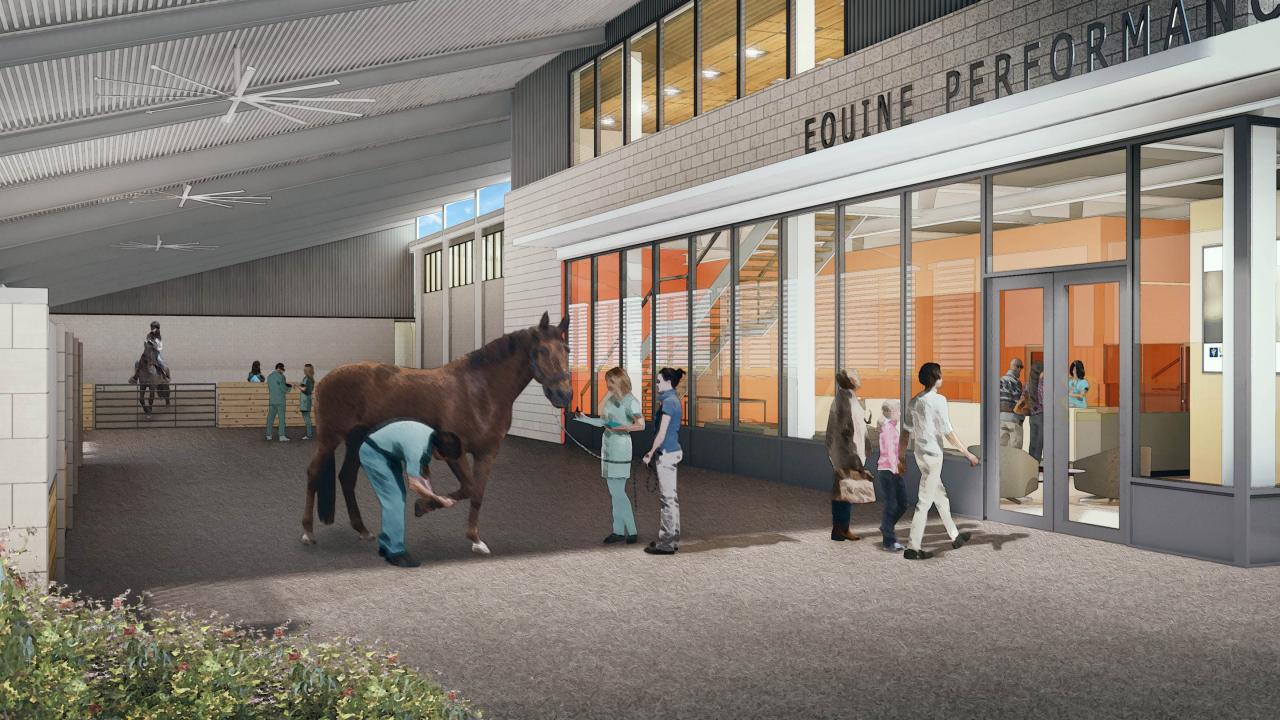The University of California, Davis, today announced plans to raise $115 million in philanthropic support to update and improve three critical areas of the UC Davis Veterinary Medical Center: the Livestock and Field Service Center, the Equine Performance Center and the All-Species Imaging Center. This campaign, called “Leading the Way,” marks the first phase in a long-term plan to transform the UC Davis Veterinary Medical Center.
UC Davis’ veterinary medicine program is already ranked No. 1 in the world. But the university’s veterinary teaching hospital is overdue for an update. Opened in 1970 to serve 3,000 patients per year, the hospital now sees more than 50,000 annually, causing the hospital to face significant constraints in space, layout and capacity, and impacting the speed at which clients receive care.
“It’s clear why patients are brought here. They receive the highest standard of compassionate care and benefit from the latest discoveries in veterinary medicine,” Chancellor Gary S. May said. "So let’s take some much-needed next steps, ones that ensure that UC Davis will continue to offer world-class care and an unbeatable education for students with a comprehensive veterinary medical center that builds on UC Davis’ strengths and reinforces our role as a world leader.”
The university has witnessed strong philanthropic interest in this campaign, having raised $67 million — more than half of the campaign goal — prior to this afternoon’s announcement. Donors include grateful clients, alumni, faculty, staff and friends of the School of Veterinary Medicine and UC Davis.
The class of 1992 had the foresight to support this project in 2012 as part of their 20-year reunion class gift. Alumnus and referring veterinarian Jon Klingborg ’87, D.V.M. ’92, spoke at the announcement about the importance of the project.
“I’m so happy that my class of 1992 is on the front edge of this fundraising initiative,” said Klingborg. “It is our vision that others will join us to help build the new Veterinary Medical Center.”
Other donors include the Frank and Eva Buck Foundation, Glen and Peggy Jeckel, the Wayne and Gladys Valley Foundation, the Baileys Foundation and Alison Baileys, D.V.M. ’16.

Consider the Animal Sciences Major
Interested in a career in veterinary medicine? Animal science majors at UC Davis are well prepared for vet school. As undergraduates, students can work as interns in the veterinary medical school and in businesses such as a water buffalo dairy to get hands-on training. Read more on our majors blog.
The first phase will include:
- The Livestock and Field Service Center will become the first patient service area to come online and is an integral example of how progress at UC Davis and its commitment to animal agriculture will benefit California and the world. Upgrades and modifications will improve student and clinician safety and will also provide patients an optimal handling and care environment.
- The equine industry is an important part of California’s economy and culture. To serve this industry, the Equine Performance Center will transform equine services with a new arena and gait analysis capability for lameness evaluations. With the opportunity to observe horses performing under saddle, the hospital’s equine specialists will be able to better detect and treat the underlying injury or medical condition. This exciting facility design includes state-of-the-art force-plate and video analysis rarely available in veterinary settings, opening a new avenue to improved performance through the application of clinical research.
- The All Species Imaging Center, pivotal to all hospital clinical specialties, will be centrally located to serve all patients, large and small. The strategic placement of the latest in imaging technology and expertise will expedite diagnosis and patient care, reduce stress and wait time for patients, and optimize operational efficiencies.
“Our vision will ensure access to the best options for veterinary care,” Dean Michael Lairmore said. “The Veterinary Medical Center will be unlike any in the world, one that combines compassionate health care for animals with innovations from across our university, a spirit of discovery and a passion for education that will transform veterinary medicine into the future.”
